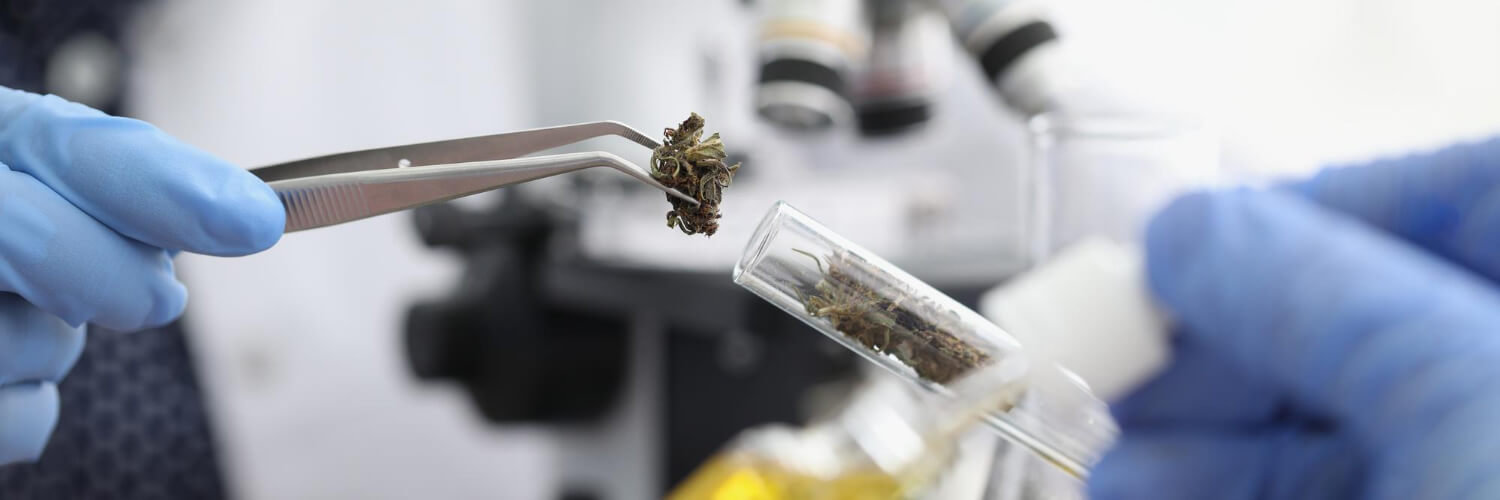So far, researchers have discovered over 100 cannabinoids that cannabis plants produce. However, despite producing a variety of them, most cannabis plants, especially the marijuana variety, overwhelmingly produce delta-9 THC in significantly greater quantities than any other cannabinoid. Recently, attention has shifted to Hexahydrocannabinol (HHC), an emerging trace cannabinoid that holds the potential to rival delta-9 THC in popularity. As we delve into the world of HHC vs. THC, let’s uncover which cannabinoid is best for your needs.
HHC vs THC: Definitions
First synthesized in 1940 by Roger Adams, before being naturally found in Cannabis sativa seeds by The de Las Heras group in 2020, thanks to having an eerily similar structure to delta-9 THC, the semi-synthetic cannabinoid, HHC has been getting a lot of attention lately.
Said to have effects that closely mirror delta-9, but without the issues regarding its legal status, this cannabinoid — that naturally appears in just traces — may be the future of cannabis. Funny enough, while having a chemical structure and effects that closely resemble delta-9 THC, HHC products are often created through a hydrogenation process that synthesizes HHC from cannabidiol (CBD) derived hemp plants, which are naturally low in THC.
HHC vs THC: Comparing the Effects
Before we kick things off, the most important thing you need to know about HHC is the lack of research on it. Essentially from research, we know that HHC has a nearly identical chemical structure as delta-9. Where delta-9 THC has a carbon double bond in its cyclic ring, HHC removes that, allowing its ring to be fully saturated.
This structural modification impacts the interaction of HHC with the cannabinoid receptors in the endocannabinoid system, influencing its psychoactive properties. In general terms, the fully saturation ring affects the HHC’s overall stability and its ability to fit into and bind with receptors, specifically CB1 receptors. Overall, this results in HHC having a weaker affinity than THC at CB1 receptors, meaning it is less intoxicating than delta-9. This has led some to think that HHC is significantly less ‘psychoactive”, but user reports tell another story.
So, what can you expect with HHC? Well, after pouring over hours of individual reports, I can safely say that you should expect HHC to have very similar effects as delta-9 THC. They have comparable potency, with most only finding HHC slightly milder in regards to the high. Side effects may be considerably less than delta-9’s, with many saying HHC produces a very enjoyable and balanced high.
On a scale of 1 to 5, with delta-8 sitting at a 1 while delta-9 sits at 5, HHC likely sits around a 4 for most people, meaning you should expect HHC’s effects to feel more similar to delta-9 vs. delta-8. However, some find HHC fits nicely in the middle. Expect a similar euphoria, muscle relaxation, and energetic head high. Now, there are two versions of HHC cannabinoids: HHC-9R and HHC-9S, with the latter being much less intoxicating. Those who find HHC matches delta-9 head-on, may be consuming HHC items high in the HHC-9R variety.
HHC vs THC: Legal Status and Safety Concerns
In most regions, legally, HHC is treated the same way other non-delta-9 THC cannabinoids are. If CBD or delta-8 is legal in your area, then HHC is most likely as well. However, with a potency that’s much closer to delta-9 than delta-8, it is entirely possible that lawmakers turn their focus on banning HHC along with delta-9 THC.
In the United States, cannabis items are legal as long as the item’s concentration of delta-9 doesn’t exceed 0.3% by volume, as outlined by the Farm Bill, which was passed in 2018. But wouldn’t you know it, the Farm Bill is reassessed and voted on every five years, meaning language regarding cannabis items may see changes before 2023 is over.
I encourage you to always stay up to date with laws regarding cannabis items. If you’re in the United States, keep your ears open for any talk regarding the Farm Bill, which may or may not be passed soon, depending on if lawmakers can come together before the election cycle takes over in February.
HHC vs THC: What to Know About Drug Tests
Until there is research that says otherwise, I advise you to treat HHC the same as THC when it comes to drug tests. While some drug tests such as blood test may be able to tell the difference between delta-9 THC and HHC cannabinoids since they test for the actual cannabinoid, drug tests that rely on the presence of metabolites may greatly struggle to tell the difference between THC metabolites (11-hydroxy-THC and THC-COOH) and HHC metabolites (11-hydroxy-HHC).
The most common drug test administered by employers and others is the urine test that looks for THC metabolites. A urine test can detect the presence of these metabolites approximately 1–30 days after use, depending on the frequency of use, individual metabolism rate, and body fat amount, to name just a few influencers. As well, HHC products are unregulated, and it’s entirely possible for there to be more than enough THC in them to cause a positive result on a drug test.
Conclusion: Which Should You Choose?
Both delta-9 THC and HHC are fine choices depending on your needs. I personally lean towards THC only out of an abundance of caution, as this cannabinoid has way more research behind it. As well, the semi-synthetic nature of HHC gives me pause due to the lack of regulatory restrictions and guidelines regarding cannabis items.
However, if you find delta-9 THC products are a little too aggressive for you, you may find HHC’s slightly milder effects perfect. At the end of the day, after going over hundreds of anecdotal reports, I feel comfortable saying that you can expect the effects from HHC to be much closer to delta-9 THC vs. delta-8.





